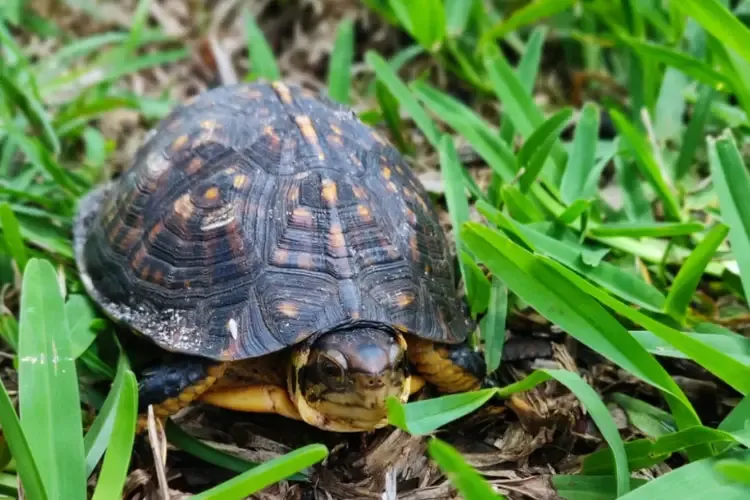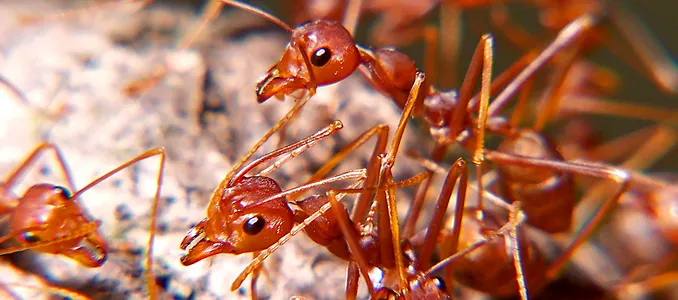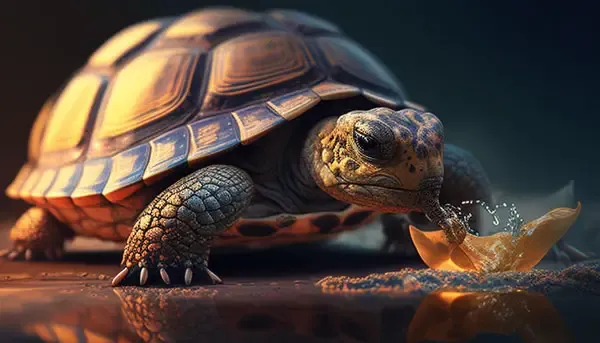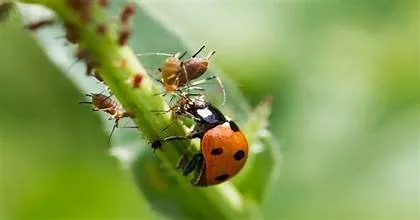
Yes, turtles can eat ants, but not all ants are safe for them. Some ants may be harmless, while others can cause health problems. This is why every turtle owner must know the difference before allowing ants in their pet’s diet. In this complete 2025 guide, you will discover the hidden risks, the safe choices, and expert tips that many owners ignore. The truth is surprising, and it may change the way you think about ants and turtles. Stay with us, because what you learn here can protect your turtle’s health for the long run.
Understanding the Link Between Turtles and Ants
Turtles and ants often meet because they share the same outdoor spaces like gardens, ponds, and sandy areas. Ants are always searching for food, warmth, and nesting spots, and this sometimes leads them to turtle habitats or nests. For turtles, this link can be risky. Ants may climb on them, bite their skin, or even attack turtle eggs, causing stress and harm.
While not every ant is dangerous, species like fire ants can cause painful stings and infections. For turtle owners, this connection becomes a real problem when ants enter enclosures or nests. The good news is that the issue can be managed. Keeping the turtle’s area clean, removing leftover food, and using safe natural repellents such as vinegar or cinnamon can stop ants without harming the turtle.
In short, the link between turtles and ants comes from shared living spaces, and with simple care, owners can protect their turtles from these tiny but harmful insects.
Also read must: Do Turtles Eat Bloodworms-Nutrition Guide 2025!
Are Ants Safe or Dangerous for Turtles?

Ants are mostly dangerous for turtles rather than safe. While a single ant may not cause harm, groups of ants can bite or sting, leading to pain, stress, and even infections on a turtle’s soft skin. Fire ants are especially harmful because their strong sting can injure turtles and sometimes cause serious health problems. Ants are also a big risk for turtle eggs, as they may attack and damage nests.
For pet turtles, ants crawling in the enclosure can make the habitat unsafe and stressful. The safest approach for owners is to stop ants before they become a problem. This can be done by keeping the enclosure clean, removing leftover food that attracts ants, and using natural repellents like vinegar, lemon, or cinnamon around the area—these do not harm turtles.
In simple words, ants are not a safe food or companion for turtles, and preventing contact is the best way to keep them healthy and stress-free.
Why Do Turtles Try to Eat Ants in the Wild?
- Natural curiosity – Turtles often test small moving insects with their mouths to check if they are edible.
- Protein source – Ants are small but full of protein, and turtles in the wild look for easy nutrition.
- Opportunistic feeders – Turtles eat what is available around them, including insects, plants, and small creatures.
- Movement attraction – The quick movement of ants can trigger a turtle’s hunting instinct.
- Lack of food variety – In some areas, ants are one of the few insects that turtles come across, so they may try to eat them.
Turtles try to eat ants in the wild mainly because of curiosity, easy access, and the natural search for protein. However, not all ants are safe, and some may bite or harm the turtle. This is why owners should avoid giving ants as food and instead provide a balanced, safe diet that keeps turtles healthy.
| Type of Ants | Effect on Turtles | Safe or Dangerous? |
| Fire Ants | Bite and sting strongly, cause pain, swelling, and sometimes infection. | Dangerous |
| Carpenter Ants | Large size, strong bite, can stress or injure turtles if many attack together. | Dangerous |
| Sugar Ants | Small and harmless, but can irritate turtle skin and attract more ants to food. | Mild Risk |
| Black Garden Ants | Usually harmless alone, but swarms may bite soft skin or disturb turtle nests. | Mild Risk |
| Army Ants | Aggressive hunters, attack in groups, can seriously harm turtles and eggs. | Very Dangerous |
| Pharaoh Ants | Known to spread bacteria, can contaminate food and stress turtles. | Dangerous |
Some ants may seem harmless, but most are not safe for turtles. Fire ants, carpenter ants, and army ants can cause serious harm, while even small ants like sugar or black garden ants can still stress turtles when they gather in groups. For the safety of turtles, it’s best to prevent any type of ants from entering their habitat or being part of their diet.
Health Risks of Feeding Ants to Pet Turtles
Feeding ants to pet turtles may look harmless, but it can create more problems than benefits. Ants are not a reliable or safe food source, and in many cases, they bring hidden health risks that owners often ignore.
- Painful bites and stings – Some ants, like fire ants, can sting or bite turtles, causing stress, swelling, or infections.
- Skin irritation – Ants crawling on a turtle may irritate sensitive skin and soft body parts.
- Risk to eyes and mouth – Ants can attack delicate areas like the eyes or mouth when turtles try to eat them.
- Bacterial contamination – Ants may carry germs and spread bacteria to the turtle’s food or enclosure.
- Poor nutrition – Ants do not provide the balanced nutrients turtles need for healthy growth.
- Stress and discomfort – The presence of ants in the enclosure can make turtles restless and uneasy.
Ants are not a safe food choice for pet turtles because they bring more health risks than benefits. Owners should replace ants with safer insect options like mealworms, crickets, or earthworms that support a turtle’s nutrition without harming them.
Protein source – Ants contain protein that can support muscle and shell strength in turtles.
Possible Benefits of Ants in a Turtle’s Diet

- Natural foraging behavior – Eating ants in the wild allows turtles to follow their natural hunting instincts.
- Trace minerals – Some ants carry tiny amounts of minerals like zinc and iron that may support turtle health.
- Low-calorie snack – Ants are very small, so they don’t add excess calories to a turtle’s diet.
- Easy availability in the wild – Turtles often encounter ants in nature, making them an accessible food option.
What Happens If a Turtle Eats Ants by Mistake?
1 No immediate harm in small amounts – If a turtle eats a few harmless ants, usually nothing serious happens.
2 Mild irritation possible – Some ants may cause slight discomfort in the mouth, throat, or stomach.
3 Risk of stings or bites – If the ants are aggressive (like fire ants), they may sting inside the mouth or throat.
4 Chance of infection – Ants can carry bacteria, which may lead to minor digestive or skin issues.
5 Stress reaction – Turtles may become restless if the ants bite while being eaten.
6 Not a nutritional food – Even if nothing bad happens, ants don’t add real value to a turtle’s diet.
7 Safe outcome with care – If the turtle ate only a few ants, keep watching for unusual behavior, but most turtles recover without problems.
Safe Alternatives to Ants for Turtle Nutrition
- Mealworms – High in protein and easy for turtles to digest.
- Crickets – Provide protein and encourage natural hunting behavior.
- Earthworms – Nutritious, soft-bodied, and safe for most turtle species.
- Small feeder fish – Good source of protein and natural enrichment.
- Leafy greens – Kale, dandelion greens, and collard greens support shell and bone health.
- Aquatic plants – Duckweed and water lettuce mimic a turtle’s natural diet.
- Commercial turtle pellets – Balanced nutrition designed to meet a turtle’s dietary needs.
- Fruits in moderation – Berries, melon, or apple as occasional treats for vitamins and variety.
Best Diet Plan for Healthy Pet Turtles in 2025
A healthy diet for pet turtles in 2025 is all about balance and variety, just like for humans. The best plan is a mix of three main things: high-quality commercial pellets, fresh vegetables, and some animal protein. The base of the diet should be a good turtle pellet that is made for their specific species, as this provides all the necessary vitamins and minerals. After that, a large part of their meals should be fresh, leafy greens like kale, dandelion greens, and collard greens, which are full of calcium and vitamins needed for a strong shell.
For protein, you can safely offer insects like earthworms, crickets, or mealworms as a smaller, regular part of their diet. It is important to remember that fruits like berries or melon should only be given as a very rare treat. By giving your turtle this mix of pellets, fresh greens, and safe insects, you will help them stay healthy and happy for many years.
What Other Insects Can Turtles Safely Eat?

The best diet for a pet turtle includes a variety of safe insects that give them the protein they need to stay healthy and strong. While some insects can be dangerous, many others are an excellent and fun addition to a turtle’s diet. Feeding your turtle the right insects helps them act on their natural hunting instincts and provides important nutrients that are hard to get from other foods.
Insect Why It’s Safe Feeding Notes
| Insect | Why It’s Safe | Feeding Notes |
| Crickets | High in protein and are a natural food source for many turtles. They also encourage hunting behavior. | Feed a few at a time, making sure they are gut-loaded (fed a healthy diet themselves). |
| Mealworms | Easy to find and high in protein and fat. Turtles love their soft texture. | Use as an occasional treat because they can be high in fat. |
| Earthworms | Very safe and nutritious. They are a great source of protein, vitamins, and minerals. | You can feed them regularly as a main protein source. Make sure they are from a clean source, not from a garden with pesticides. |
| Dubia Roaches | Excellent source of protein, low in fat, and a good calcium-to-phosphorus ratio. | Can be a staple food. They are easy to care for and do not make noise like crickets. |
| Silkworms | Soft-bodied and very nutritious. They are easy to digest and a great source of protein. | They are safe to feed often and are a good option for turtles that are picky eaters. Export to Sheets |
Expert Tips to Keep Ants Away from Turtle Tanks
1 Clean Up Immediately: Never leave uneaten food in the tank. Remove any leftover food within an hour of feeding, and make sure to clean up any food crumbs or spills on the tank’s outside area.
2 Build a Water Moat: The most effective trick is to place each leg of the tank stand into a shallow dish or bowl filled with water. This creates a tiny moat that ants cannot cross to climb into the tank.
3 Use Natural Repellents: Create a line around the outside of the tank using natural repellents like a thin line of cinnamon powder. You can also spray a mixture of white vinegar and water on the floor around the tank. Ants hate these smells, and they are completely safe for your turtle.
4 Elevate the Tank: Keep the tank raised off the floor on a secure stand or table. This simple step makes it much harder for ground-crawling ants to find their way in.
5 Check for Entry Points: Look for ant trails leading to the tank and follow them back to their source. Once you find their entry point (like a window crack or wall hole), you can use natural methods to block it.
6 By using a combination of cleanliness and natural barriers, you can easily keep ants away from your turtle’s home. These simple steps are the safest and most effective way to protect your pet from these tiny pests without using any harmful chemicals.
Faqs
Are ants harmful to turtles?
Yes, ants can be harmful to turtles, especially when they appear in large groups. They can bite and sting, causing stress and pain, and are a serious danger to turtle eggs and babies.
Why shouldn’t squish ants?
When you squish an ant, it releases a chemical signal that warns other ants and can attract more of them to the area. This can make the ant problem worse instead of solving it, as the new ants will follow the trail to the food source.
Do turtles attract ants?
Yes, turtles can attract ants, but it is not the turtle itself that draws them in. Ants are attracted to the food, water spills, and warmth found inside and around a turtle’s enclosure, making it an ideal spot for them.
Do spiders eat ants
Yes, some spiders will eat ants, especially species that are quick and strong enough to capture them. However, many spiders avoid ants because they can be aggressive, release bad-tasting chemicals, and can fight back.
Are spiders afraid of ants?
Spiders are not afraid in a human sense, but they often avoid ants because they are risky to hunt. Ants can bite and sting, and a single spider is no match for a large ant colony, so they stay away to avoid a fight they can’t win.
conclusion
In the end, while turtles and ants may cross paths in nature, it’s clear that ants are more of a threat than a treat for our pet turtles. From the painful stings of fire ants to the risk of bacterial contamination, the dangers far outweigh any small benefit. The best way to protect your turtle is to focus on prevention. By keeping their habitat clean, using simple natural barriers like cinnamon or a water moat, and feeding them a balanced diet of safe alternatives like mealworms and crickets, you can avoid these problems entirely. The goal is to create a safe, stress-free home where your turtle can thrive, knowing that a little bit of care goes a long way in ensuring their health and happiness for years to come.